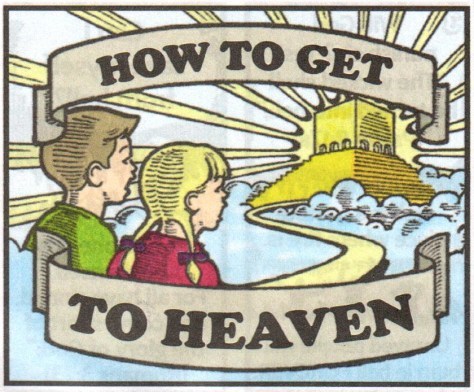Cody Cook's Blog, page 18
January 20, 2020
The Separation of Church and Sith

There is a powerful
spiritual force that makes men obsessed with gaining and maintaining political
power by tapping into their fear, hatred, and greed. Men who take a turn down
this dark path become unconcerned with right and wrong, seeing them as mere
matters of opinion, and focus their attention instead on the never ending quest
for “unlimited power.” Individuals have no value in this “order”—anyone who
opposes it is worthy of death and even those at the top can be sacrificed if it
means expansion of control for this dark order.
Thankfully, there is also
another spiritual force that places itself in opposition to that dark power—that
resists hatred, revenge, and pride and will never give up the fight against the
dark.
Of course, I’m talking about
the state—a force which the Bible associates with diabolical hegemony—and the
church—a spiritual kingdom that expands its borders by love instead of violence
and fear.
I’m also talking about the Sith and the Jedi, two opposing sides of “the force,” which is the spiritual power that ties the universe together in the Star Wars films. The parallels between these two sets are instructive. What is it about the dark side of the force that compels those under its influence to build an empire? Similarly, why does the Bible consistently connect the state with wicked spiritual powers (c.f. Psalm 82, Daniel 10, Revelation 12-13, etc.)?
And if the state is so irretrievably wrapped up with dark spiritual forces, why do Christians, as well as the Jedi, align themselves so closely with it? The Sith lord Palpatine may be a villain, but he highlighted an important truth when he spoke about the allure of opening oneself to dark forces. In seducing Anakin to the dark side, the then Chancellor Palpatine echoed the serpent in the garden when he argued for a “larger” and more “subtle” view of the force to make one “wise” and “complete,” encouraging Anakin to ”study all [of the Force’s] aspects, not just the dogmatic, narrow view of the Jedi” (see Star Wars Episode III: Revenge of the Sith). The truth he highlighted is that it is dangerous to compromise with evil—even though it looks like wisdom to those who are perishing. That’s why when liberty died in the Galactic Senate, it did so with thunderous applause: those who gave in to empire took seriously Palpatine’s promise that it would result in a “safe and secure society.”
In other words, we give up the good for power, which we think will keep us safe. As Palpatine opines, “all who gain power are afraid to lose it. Even the Jedi.”
And even the church.
Looking back at the Star Wars Universe, we find that the Jedi, a class of religious zealots who spoke and acted with moral authority in the original trilogy, compromised this moral authority in Episodes I-III by aligning themselves too closely with state power thus becoming pawns of the Sith Chancellor. Having become spiritually castrated by their desire to have a seat at the table, they served the galactic senate and its evil leader by making their lightsabers tools of the state. While the Jedi appeared, on the surface at least, to be “salt” and “light” to the machinations of empire, they instead played right into its hands.
Power, according to the soon-to-be Sith Lord Anakin Skywalker, should be exercised to “make” everyone agree, to compel them to either bend the knee to the will of the empire, or else bend the knee for the headsman. This is the way of the Sith, the way of powers and principalities. But the Jedi were truly at their best when they had the freedom to fulfill their moral mission to oppose power and its cruelty, not when they were forced to compromise and play political games in order to maintain their influence.
When Satan tempted Jesus
with the promise of political power, a force which the dark lord himself held
the reigns of (Luke 4:5-7), Jesus rebuffed his offer. He knew that the kingdom
of God would not come like earthly (or even galactic) empires do. But many who
claim the name of Jesus have failed to follow in the footsteps of their Lord.

Even though Jesus said that His kingdom was not of the world and that the one who would be first in it should seek to be last, can we really trust Him enough to loosen our hold on state power and its privileges? Just as the Jedi served as a kind of special forces for the Republic, doing their bidding by bloodying their hands, the church has not taken seriously its unique vocation. In Revenge of the Sith, Palpatine accused those who sought to represent the light side of not trusting the Chancellor, the Republic, or even democracy. If only!
January 11, 2020
Six REALLY Bad “Biblical” Arguments Against Christian Pacifism (with memes!)
As a proponent of Christian pacifism with a social media account, I hear a lot of “biblical” arguments in support of Christians using lethal force or supporting war.
As a theology grad student, I also know that most of these arguments are really, really bad. Here’s why.
1. Jesus told His followers to buy a sword (Luke 22:36)

If Jesus told His disciples to buy a sword, the logic goes, that must mean that Jesus supported lethal self-defense and (by some stretch of the imagination) maybe even pre-emptive wars. If you limit your reading to only this verse and the one previous, it’s not hard to see how Jesus could be seen as supporting the use of violence among His followers:
“And he said to them, ‘When I sent you out with no moneybag or knapsack or sandals, did you lack anything?’ They said, ‘Nothing.’ He said to them, ‘But now let the one who has a moneybag take it, and likewise a knapsack. And let the one who has no sword sell his cloak and buy one.'”
Luke 22:35-36, ESV
In this very limited reading, Jesus seems to be saying that at an earlier point, His disciples went out into a dangerous world with very little provisions but God took care of them. However, as Jesus was about to be arrested and crucified and the church age was to begin, a time had now come when they would have to fend for themselves and should even travel armed as they go out preaching the gospel.

But when you look into the wider context of this passage, there are good reasons to think that Jesus was not encouraging His disciples to carry a sword for self-defense. In fact, there are at least four:
When Peter understood Jesus’ words literally, he replied “look, Lord, here are two swords” (22:28) and Jesus responded, “it is enough.” This response has been understood one of two ways by most exegetes: either Jesus was literally saying that two swords were sufficient for a certain task or He was expressing frustration that Peter had bungled so much in his understanding: i.e. “alright, that’s enough.” If we take the first option, could Jesus really have meant that two swords were enough for more than 12 men to defend themselves? On the face of it, it seems comical. But there is a different purpose that two swords would have been enough for…Those who are so eager to defend violence for Christians often shoot past the very next verse after this treasured prooftext. In it, Jesus actually gives the exact reason why He wanted His disciples to have swords in this moment: “For I tell you that this Scripture must be fulfilled in me: ‘And he was numbered with the transgressors.’ For what is written about me has its fulfillment.” In other words, Jesus wanted His disciples to have swords so that a prophecy would be fulfilled—that He would be seen as being a transgressor, a violent rebel, thus justifying in the minds of those arresting Him their perception of Him as a threat. His followers carrying swords like common criminals would justify this perception. Jesus was not saying that His followers should buy a deadly weapon and be prepared to use it, but that this is what sinners do. Thus, the swords served a very specific purpose. In fact, He goes on to chastise one of His followers for using a sword for another purpose.That very night, when soldiers came to arrest Jesus, we read that His followers called out, “Lord, shall we strike with the sword?” just as one of them (Peter, according to the Gospel of John) struck a slave of the high priest and cut off his right ear. In Luke, Jesus responds, “Stop! No more of this” and heals the slave (v. 49-51, ESV). Matthew gives a slightly different account: “Then Jesus said to him, ‘Put your sword back into its place; for all those who take up the sword shall perish by the sword. Or do you think that I cannot appeal to My Father, and He will at once put at My disposal more than twelve legions of angels? How then will the Scriptures be fulfilled, which say that it must happen this way'” (Matthew 26:52-54, ESV). Those hoping to make this passage somehow support violence highlight only the last part, arguing that the real reason Jesus objected to what Peter did was because it didn’t serve His purposes in that moment. But that wasn’t Jesus’ initial objection. Instead, He highlighted the futility of violence and sought to disarm Peter with His words. In addition, read in context Jesus wasn’t saying that if Peter used violence it would foil Jesus’ plan, but that if God had sent twelve legions of angels to protect Jesus, this would have foiled His plan. The difference is important because then the flow of the argument is really that Peter should not use violence because it’s self-defeating, and that if God wanted something done badly enough He could intervene to make it happen. In other words, Jesus was chastising Peter for His lack of faith in God.The fourth contextual reason to reject the pro-violence reading of Luke 22:36 is a little more complicated and has to do with the structure of the passage forecasting the taking up of the sword as a practical denial of Jesus. For a more detailed account of this argument, you can read David Burnett’s handout “The Sword and the Servant: Reframing the Function of the ‘two swords’ of Luke 22:35-38 in Narrative Context.” (https://nakedbiblepodcast.com/wp-content/uploads/2018/02/David-A.-Burnett-SBL-Lk-22.35-38-Handout.pdf)
2. Paul taught that we should obey the state (Romans 13)

Paul writes in chapter 13 of his letter to the Roman church that Christians should be subject to the state because authorities are instituted by God and carry the sword to avenge against those who do evil. Even taken at face value, this is not an endorsement for Christians using violence since the preceding verses in chapter 12 distinguish what the state does—use force against its enemies—from how Christians are expected to behave:
“Beloved, never avenge yourselves, but leave it to the wrath of God, for it is written, ‘Vengeance is mine, I will repay, says the Lord.’ . . . Do not be overcome by evil, but overcome evil with good.”
Romans 12:19-21 ESV
In other words, even if the state does serve a purpose with its violence, Christians are to keep their distance from it.
If the state is an
“avenger” for God (13:4), the Christian is told to be the opposite—to
never avenge but leave room for God’s wrath, exercised either on the day of
judgment or vicariously through state violence against the wicked. Instead of
participating in this state violence, the Christian is called to overcome evil
with good.
In addition, there are very good reasons to reject the simplistic reading that Paul thought that “rulers are a not a terror to good conduct,” and that if you “do what is good . . . you will receive [their] approval.” (ESV) Not only does such a statement sound hopelessly naive, it also flies in the face of what Paul himself knew and experienced. Paul was a Jew in a land which had been occupied by a series of pagan oppressors. The epistle to the Romans was written in the mid-50s, meaning that Paul’s experience of being unjustly beaten with rods by magistrates in Philippi (see Acts 16) and his public shaming of those same magistrates was more than five years in the past. Not only that, but prior to his conversion he had been given the authority to oppress and kill Christians, a charge which he now understood to be wicked. After his conversion, he would have understood that his sinless Lord and savior had been crucified by the very rulers whom he claimed “are not a terror to good conduct.”

This suggests that
Paul was either speaking about what the state will ideally do, or was being
tongue-in-cheek, or both. When you examine the passages he either explicitly
quotes or implicitly refers to in Romans 12-13, the possibility of a sarcastic
or coded reading is strengthened.
For instance, it should be observed that Paul’s statement about God’s vengeance is a quotation from Deuteronomy 32:35 where God is speaking about punishing the pagan nations for their wickedness and is mocking their gods who could not protect them:
“For they are a nation void of counsel, and there is no understanding in them . . . For their rock is not as our Rock; our enemies are by themselves . . .Vengeance is mine, and recompense, for the time when their foot shall slip; for the day of their calamity is at hand, and their doom comes swiftly.”
Deuteronomy 32:28-35, ESV
The immediate
context of the verse that Paul cited speaks of God executing vengeance over
disobedient and immoral pagan kingdoms, like Rome was in Paul’s day—meaning
that Paul was quoting a passage which seems to claim the opposite of what he
was using it for. Perhaps Paul’s point was that those in power are responsible
for punishing the guilty and not the innocent, but their failure to do so meant
that God would hold them accountable when He issued his final judgment against
the powers?
Scholars have also pointed out parallels between this passage and the deutero-canonical book of Wisdom, which claims that dominion is given to rulers by God. But if this is the inspiration for Paul’s words here, it also must be read in its context:
“Because authority was given you by the Lord and sovereignty by the Most High, who shall probe your works and scrutinize your counsels! Because, though you were ministers of his kingdom, you did not judge rightly, and did not keep the law, nor walk according to the will of God. Terribly and swiftly he shall come against you, because severe judgment awaits the exalted—For the lowly may be pardoned out of mercy but the mighty shall be mightily put to the test.”
Wisdom 6:4-6, NABRE

That Paul would allude to yet another text to support a contention which it actually contradicts further supports that Paul was writing with his tongue in his cheek.
For more information on this reading of Romans 13 and its context within the biblical framework, you can read my book Fight the Powers: What the Bible Says About the Relationship Between Spiritual Forces and Human Governments.
3. Jesus told soldiers not to take bribes, but not to leave their professions (Luke 3:14)

Any Bible reader who is actually paying attention will know that it was John the Baptist who said this and not Jesus (look it up if you don’t believe me!), but since 95% of the time this argument has been made to me the words were falsely attributed to Jesus, that’s how I detailed the argument above.
The story in question details the various types of people coming to John and asking for spiritual advice. When soldiers came to him asking what to do, he told them simply, “do not extort money from anyone by threats or by false accusation, and be content with your wages” (Luke 3:14, ESV). The reason this verse is brought up is because Jesus (though actually John) doesn’t think to tell them to give up soldiering altogether, thus it must be the case that Jesus was positively in favor of Christians killing on behalf of the state.
But why should it matter who said it? It’s in the Bible, right?
Well, there are a lot of people quoted in scripture who made incorrect statements. For instance, in the book of Job his friends make all kinds of contradictory and false statements about why God would allow Job to suffer. The Bible is telling us that John said this, not that John was infallible.
The fact that biblical characters can be mistaken is particularly true in the case of John. Though he was famously prescient about Jesus’ messiahship, he also didn’t seem to understand what it meant for Jesus to be the messiah. While in prison, a disillusioned John struggled with why he would be suffering oppression under an illegitimate king while Jesus, the real king of the Jews, had come to His people. Thus, the very same John who had proclaimed that Jesus was the Lamb of God who takes away the sin of the world sent word to Jesus by his disciples asking Him, “are you the one who is to come, or shall we look for another” (Matthew 11:3, ESV)?
So, even though John had been given the insight that Jesus was the Christ, he apparently failed to understand what that actually meant. Similarly, those who think that Jesus is a messiah who wants His people to crack skulls for the kingdom have also failed to apprehend the nature of His kingdom and lordship. While John can be forgiven for his misunderstanding as a prophet of the old covenant who had yet to hear Jesus preach the Sermon on the Mount and who hadn’t had the kingdom of God explained to him yet, modern Christians with complete Bibles should know better.
4. Peter didn’t tell Cornelius to leave the army (Acts 10)

Okay. So maybe John going easy on the soldiers can be credited to His pre-kingdom perspective, but what about the apostles’ treatment of soldiers after Jesus had been crucified and resurrected? For instance, what about the gentile centurion whom Peter preached the gospel to but neglected to tell that he needed to leave the army?
For those whose memory of this story is hazy, Cornelius was a gentile centurion in the Italian Cohort who feared Israel’s God. After having a vision of an angel, he was instructed to send for the apostle Peter, which he did. Peter had his own vision in which he was chastised for seeing gentiles as unclean, thus beginning the first gospel mission to gentiles.
Though this was indeed after Jesus was resurrected, a similar argument can be made about Peter’s limited point of view as we made about John the Baptist’s. After all, Peter has just figured out that the gospel can go out to gentiles! If he’s missing something that basic to the mission of Jesus, perhaps he hadn’t fully gotten the memo yet about Jesus’ new kingdom not being like an earthly kingdom with armies (see John 18:36).
It’s also possible that in the moment it wasn’t at the forefront of Peter’s mind, or that Peter did discuss it with Cornelius, but Luke’s (the author) interest in this section of his book was on the gospel going out to the gentiles so he only discussed details which were central to that concern in his narrative. Ultimately the argument here is from silence, so there isn’t much that can be said either way.
Speaking of building a theology from silence, Preston Sprinkle noted in his book Fight: A Christian Case for Non-Violence that:
“as a centurion, Cornelius (as well as the centurion in Matt. 8) would not only be pressured to worship foreign gods, but also be responsible for leading various ceremonies on behalf of his cohort. As a centurion, Cornelius would essentially function as a pagan priest! True, Peter doesn’t forbid Cornelius to use violence. But neither does he forbid him to perform pagan duties. Because that’s not the point of the story. Acts 10 and other soldier-salvation passages highlight one basic point: the gospel pierces the hearts of unlikely people—even Roman military leaders.”
This argument from silence, like most arguments from silence, doesn’t prove what its proponents hope it does.
5. Just war principles are supported by the Bible (scripture reference unavailable)

This objection is very difficult to deal with because there are no passages which give explicit support for Just War principles. As a reminder, just war principles include:
Just cause. The reason for going to war must be
just. Innocent life must be in imminent danger and intervention must be to
protect life.Distinction. Acts of war should be directed
towards enemy combatants, not civilians.Proportionality. Combatants must make sure that
any harm caused to civilians or their property not outweigh the direct military
advantage expected by an attack.
Compare these criteria to the wars which God commanded in the Old Testament:
“But in the cities of these peoples that the LORD your God is giving you for an inheritance, you shall save alive nothing that breathes, but you shall devote them to complete destruction, the Hittites and the Amorites, the Canaanites and the Perizzites, the Hivites and the Jebusites, as the LORD your God has commanded, that they may not teach you to do according to all their abominable practices that they have done for their gods, and so you sin against the LORD your God.”
Deuteronomy 20:16-18, ESV
Even allowing for the possibility of hyperbole here, as has been argued by Paul Copan and Matt Flannagan in their book Did God Really Command Genocide?: Coming to Terms with the Justice of God, we still don’t see any consistency here with just war principles. On the exact opposite end of the spectrum, Jesus said things like, “my kingdom is not of this world. If my kingdom were of this world, my servants would have been fighting … but my kingdom is not from the world” (John 18:36), “do not resist the one who is evil. But if anyone slaps you on the right cheek, turn to him the other also … Love your enemies and pray for those who persecute you” (Matthew 5:39, 44), and “put your sword back into its place. For all who take the sword will perish by the sword” (Matthew 26:52).
While the Old Testament gives guidelines for total holy war and the New Testament gives principles for being citizens in the non-violent spiritual kingdom of God, what you don’t find in scripture is a defense of just war philosophy.
6. “Love your enemies” only applies to personal enemies (Matthew 5:38-48)

This is less of an
argument from scripture and more a bare assertion about what scripture means.
In the Sermon on the Mount, Jesus tells His hearers:
“You have heard that it was said, ‘An eye for an eye and a tooth for a tooth.’ But I say to you, do not resist the one who is evil. But if anyone slaps you on the right cheek, turn to him the other also. And if anyone would sue you and take your tunic, let him have your cloak as well. And if anyone forces you to go one mile, go with him two miles. Give to the one who begs from you, and do not refuse the one who would borrow from you. You have heard that it was said, ‘You shall love your neighbor and hate your enemy.’ But I say to you, love your enemies and pray for those who persecute you, so that you may be sons of your Father who is in heaven. For he makes his sun rise on the evil and on the good, and sends rain on the just and on the unjust.”
Matthew 5:38-45, ESV
The problem with
the claim that Jesus only had personal enemies and not national enemies in mind
is that the examples He gives are of things that Israel’s enemies did to them! It
was not any old stranger who would force one of Jesus’ Jewish listeners to walk
with them a mile, but a Roman soldier demanding that a subjugated person carry
his pack for him. Similarly, a Jew in Jesus’ time was perhaps most likely to be
back-handed by a Roman oppressor than a fellow Jew. In other words, you cannot introduce
a distinction into this passage that it not only doesn’t contain but naturally
resists.
December 17, 2019
The Gospel According to Tracts: How to Get to Heaven
Tracts are small handouts which mix graphics and text to give a simple presentation of the gospel (and occasionally a subject that fundamentalists think is just as important as the gospel, such as the danger of celebrating Halloween) which can be handed out to strangers. They are quick “elevator pitches” of Christianity–the most straightforward and easy-to-memorize gospel presentations their authors can come up with.
But how well do most tracts really capture the gospel message? I was given a tract recently from some very nice folks that I thought was a pretty good representation of many of the other tracts I’ve seen, and I thought it might be fun to compare its message to the gospel as presented in the Bible. This tract was published by the Fellowship Tract League, an organization in my own back yard that is affiliated with a local Indepenent King James Only Baptist church and, to their credit, provides all of their tracts for free. So let’s begin!
 That street could really use a safety railing.
That street could really use a safety railing.We’re already off to a rough start. It is a common misunderstanding of the gospel that its primary concern is how we get to heaven. It isn’t. The Bible tells us that Jesus came to save us from our sins (Matthew 1:21) so that we might become children of God (John 1:12) and live forever (John 6:51).
While there are a small handful of verses that suggest that the spirits of the saved ascend to heaven after death, the real goal of salvation is not to get to heaven, but to have our bodies raised again to eternal life to live on earth. As the book of Revelation says:
“Then I saw a new heaven and a new earth, for the first heaven and the first earth had passed away, and the sea was no more. And I saw the holy city, new Jerusalem, coming down out of heaven from God, prepared as a bride adorned for her husband. And I heard a loud voice from the throne saying, ‘Behold, the dwelling place of God is with man. He will dwell with them, and they will be his people, and God himself will be with them as their God'” (Revelation 21:1-3, ESV).
It can only get better from here, right?
 Note that the Bible is a King James Bible. If Elizabethan English was good enough for the Apostle Paul, it ought to be good enough for us!
Note that the Bible is a King James Bible. If Elizabethan English was good enough for the Apostle Paul, it ought to be good enough for us!It’s true that the Bible contains God’s “law.” However, in the Bible the “law” refers to the directions given to Moses and the Hebrews regarding moral behavior, temple sacrifices, civil regulations, etc. Much of this law directly applied only to Jews and was explicitly overturned by Jesus, but yes, the law of God given to Moses can be found in the Bible. What of it?
 I hope no one tells these Baptists what God’s law says about bacon.
I hope no one tells these Baptists what God’s law says about bacon.This panel tells us that sin is breaking God’s law. But is it true that sin is defined in the Bible as breaking the laws given to Moses?
Not quite. Sin is sometimes described as breaking one of the laws given to Moses, but not always. For instance, Mark 3:29 describes “blaspheming the Holy Spirit,” which is not expressly forbidden in the law of Moses, as a sin. Paul describes sin as that which isn’t rooted in faith, so that even actions which are not forbidden by God are sin if they are done in the wrong spirit (Romans 14:23). James 4:17 tells us that anyone who knows the right thing to do and fails to do it has committed sin. Romans 5:13 says that sin existed long before the law of Moses was given.
However, the claim that disobeying God counts as sin is true (Romans 5:12). It is also true that the law of Moses has a role in giving us more clarity about sin in our own lives (Romans 7:7), though it is not true that God will punish us for failing to obey all of it–especially those laws involving ritual sacrifice, clean and unclean foods, and other Mosaic directives which are not in force today.
So, while the law of Moses can help us to see that we are in need of repentance by highlighting things we’ve done wrong (turning away from our wrongdoing and looking to God), it’s misleading to argue that sin is synonymous with not following the law of Moses. It’s much bigger than that, and all of us should be aware of our need to repent from wrongdoing even if we’ve never read the law of Moses.
 Now you’ll know how the bacon felt!
Now you’ll know how the bacon felt!We’ve got a couple problems here. First of all, there’s an issue with that blasted King James Version. Psalm 9:17 actually says that the wicked will turn to sheol, a Hebrew word for death and the grave which the KJV mistranslated as hell.
It’s highly contestable that the Bible teaches that the unsaved will burn in hell forever. As noted above, Jesus became a human being, died, and was resurrected so that we might live forever. He came because God loved the world so much that He wanted us to have eternal life (live forever) instead of perishing (John 3:16).
That being said, there is a passage in the metaphor and imagery-laden book of Revelation which seems to argue for the eternal torment of sinners:
“And the smoke of their torment goes up forever and ever; they have no rest day and night, those who worship the beast and his image, and whoever receives the mark of his name.” (Revelation 14:11, NASB)
But this imagery of smoke going up forever and fire not being quenched is borrowed from an Old Testament passage (Isaiah 34:10) about a divine punishment that happened on earth which has since ended. This makes using it as a proof text for eternal conscious torment a very precarious venture.
Instead, it is wiser to go with the more consistent and clear witness of scripture: that the payment for our sin is death but God instead offers us the gift of eternal life through Jesus (Romans 6:23).
 Those cute little pigtails will make for good kindling.
Those cute little pigtails will make for good kindling.Setting aside the imagery of cute little kids burning forever, the central idea–that there is a punishment for sin which only Jesus can rescue us from–is quite biblical. It is Jesus who offers us salvation from death by being united to Him.

This is the least objectionable panel yet, but there are still some finer points which could be debated. For instance, what does it mean for Jesus to pay for our sins? The metaphor of transaction here could create an image in the mind of this tract’s reader of God adding up our sins and asking that we pay the penalty before being let into heaven. Jesus then steps in and pays it for us. But that isn’t quite right. Humanity, steeped in its sin and not warranted in expecting anything better than death, is delivered some very good news. God the Son took on our humanity and experienced the death which was due to us on our behalf. But unlike us, death could not hold Him. Therefore, He was raised back to life never to die again. Those of us who share in Him as He shared in our human nature–those who declare allegiance to Christ and put our faith in Him–will therefore defeat death with Him.

Looking good! Jesus defeated death and can never die again. However, the tract writers seem to have missed that the resurrection is just as central to the gospel message as the crucifixion, if not moreso. It proves that Jesus defeated death!

This is true, but true belief should always entail a change in how we live our lives. If we claim to have faith but no change occurs in us, we are liars.
 “We don’t want your American Spirit cigarettes, you hipster!”
“We don’t want your American Spirit cigarettes, you hipster!”This isn’t exactly what I had in mind when I wrote about faith entailing a change in how we live our lives. There is nothing in the law of Moses, the Gospels, or even common morality requiring us to glare at smokers, though I’ll admit I’ve done it a few times.
 Proof that you can follow the wrong steps and still get the right answer.
Proof that you can follow the wrong steps and still get the right answer.This is good stuff. Absolutely turn to Jesus. He will save you from your sins and from death.
 A present?! I hope it’s not socks again.
A present?! I hope it’s not socks again.Romans 6:23b is important, but it’s meant to contrast 6:23a, which tells us that the wages of sin is death. In contrast to death, those who accept the gift of God get eternal life. As we’ve noted already, eternal life does not mean living in heaven without your body as opposed to (paradoxically) burning in hell without your body, but living forever with God as opposed to being destroyed body and soul.
 Well, did ya… PUNK?
Well, did ya… PUNK?Eternal life good. Perishing bad. Thanks, Jesus!
PODCAST: Cantus Firmus Book Club Ep. 5 – The Day the Revolution Began (w/ Ruth Ryder)
I recently had the opportunity to speak with Ruth Ryder about the N.T. Wright book The Day the Revolution Began: Reconsidering the Meaning of Jesus’s Crucifixion, highlighting its theme of rejecting the violence of the world for Christ’s new way of doing things and finding some commonalities in how libertarians approach power and coercion.
Ruth is a graduate of Eastern Michigan University (BA, History) as well as Trinity Evangelical Divinity School (MA, Intercultural Studies) and the University of Notre Dame (MTS, History of Christianity). She has previously published with The Libertarian Christian Institute, The Foundation for Economic Education, The Federalist, and the academic journals Worship and the Christian Libertarian Review, where she is the assistant editor.
Download:
http://www.cantus-firmus.com/Audio/20191215-CFBC-Ep5-TheDayTheRevolutionBegan.mp3
Music:
“Liam Rides a Pony” by Polyrhythmics. Licensed under CC BY 3.0
http://www.needledrop.co/wp/artists/p...
November 27, 2019
Five Dumb Things People Believe About the Bible

Despite being one of the most read and most beloved books in human history, it’s also one of the most misunderstood. Here are some really dumb things that people believe about this ancient book.
1. It’s been translated too many times for us to know what it originally said.
This is a popular argument made by skeptics who simply don’t understand where our English Bibles come from. They assume that the Bible was originally written in an ancient language (if you’re lucky they’ll know it was Greek and Hebrew, but they’ll probably think it was Latin) and was then translated into a new language, somehow destroying the original language manuscripts in the process. Then manuscripts in that new language were translated into another language which replaced the previous language manuscripts, and so on. Finally, we get to English having lost the manuscripts from all previous languages. Thus, “the Bible has been translated too many times for us to know what it originally said.”
Thankfully, that’s not at all how it actually happened. True, the Bible has been translated into many, many languages. However, our English translations are not based on any of these other translated manuscripts. Instead, our English Old Testaments are translated from Hebrew manuscripts (usually medieval since many earlier manuscripts have been lost, though we can compare these medieval manuscripts to Hebrew and Greek manuscripts from around the time of Jesus) and our English New Testaments are based on Greek manuscripts which now number in the thousands, spanning from at least the 2nd century A.D. to the medieval period.
While there are some debates over minor textual variants in the Bible among the many manuscripts we’ve discovered, our English translations seek to be faithful to the original language manuscripts we have and continue to discover.
2. The Bible can be used for divination.
Some people think that the best way to read the Bible is to flip to any page during a time of trouble and stick your finger on a random Bible verse for divine guidance. While it would be presumptuous to say that God has never guided people through a process like this, that isn’t actually how you’re supposed to read the Bible. Every verse is part of a chapter, every chapter is part of a book, every book is part of the whole Bible, and even the Bible itself is part of a historical context which helps us to understand what it means. If you ignore the Bible’s context, you’ll end up coming up with all kinds of weird ideas. So never read a Bible verse…
Out of context, that is.
3. The Council of Nicea put together the first Bible by editing things out that they didn’t like.
For all of the talk about the Council of Nicea in popular culture, for instance in Dan Brown’s The Da Vinci Code, very little of it is actually true.
The Council of Nicea was an early fourth century church council called together by the Emperor Constantine to settle a church dispute started by a priest named Arius who was teaching that Jesus was the divine first creation of the Father and not God in the flesh. The bishops who came together agreed that Arius was wrong and crafted a statement about Jesus’ divine nature which we today call the Nicene Creed. What they didn’t do was declare what books should and shouldn’t be considered scripture.
That process happened organically among the churches over time. From a very early period, the church agreed on the four Gospels and the letters of Paul, with some disputes over which other New Testament books should be considered part of scripture. These disagreements seemed to have been mostly settled by the end of the fourth century, though the Catholic and Eastern Orthodox churches still disagree with Jews and Protestants about some books in the Old Testament (see the article Why Do Catholic Bibles Have More Books?).
4. The Bible should be taken literally
To take words literally means to understand them in their plainest sense without using metaphor or symbolism. If this is how the Bible should always be understood, then Jesus is not a person but a hinged barrier at the entrance to a building (“I am the door.” – John 10:9).
Instead of always taking the Bible literally, we should seek to understand it literarily, which is to say according to the literary rules by which each portion of it is supposed to be understood. For instance, parables read differently than history (and even ancient history may have different guidelines than modern history), poetry requires different rules of interpretation than apocalyptic literature, etc.
While it may be God’s intention to communicate truth using straight forward, literal language at times, it would be a mishandling of any writing to not read it according to its genre and its author’s intention.
5. The Bible is God’s instruction book.
Westerners in particular have a no-nonsense approach to truth. We like to have our truth laid out in simple propositions that can fit on a bumper sticker. It’s no wonder then, that we create actual bumper stickers that say things like, “B.I.B.L.E. = Basic Instructions Before Leaving Earth.”
But is the Bible simply an instruction book? Well, much of it is narrative–stories about people and places with very little direct instructions for readers to follow. Where there are direct instructions, most of them aren’t followed by Christians today because they involve sacrifices or the Israelite theocratic government which Jesus replaced with the cross and the Kingdom of God, respectively. This leaves some laws from Moses, some guidance from Jesus, and some letters from Paul–but even these often relate to issues specific to their own times which have to be reinterpreted for today’s context if they are going to be read as “instructions” for us.
So what is the Bible if it isn’t an instruction book? It’s a book about how God has dealt with His people, how His people have sought to follow Him, and His plans and purposes from original creation to re-creation in Christ. That doesn’t mean there isn’t guidance for how we should live today, but it comes out of our careful, prayerful, Spirit-led reflection on this ancient text written in times different from our own.
November 7, 2019
PODCAST: Cantus Firmus at the Movies Film Festival – Space Is the Place
Some time back I had started a Patreon and part of the benefits that subscribers got was a Patreon-exclusive podcast. That Patreon has been closed for some time now but there was some really cool content left over that only a few people got to hear. Here is a collection of film analyses I did organized around the theme “Space is the Place,” including discussion of Star Trek VI: The Undiscovered Country, The Thing from Another World, Mars Attacks, Star Wars Episode 7: The Last Jedi, and 2001: A Space Odyssey.
Audio:
http://www.cantus-firmus.com/Audio/20191107-CFATM-Ep17-FilmFest1.mp3
Music:
“Octagon Pt 2” by Polyrhythmics. Licensed under CC BY 3.0
http://www.needledrop.co/wp/artists/polyrhythmics/
“Kitchen Suite” by Spiedkiks.
November 4, 2019
Ten Must-Read Books on Christianity and Nonviolence
It goes by many names–pacifism, nonresistance, nonviolent resistance, satyagraha, etc. But at root is the notion that the response to violence should be a committed and sacrificial non-violence which humanizes the enemy who seeks to dehumanize you. In the Christian tradition, this philosophy is rooted in the words and deeds of Jesus Christ.
Here are ten must-read books that explore what it means to follow Jesus into nonviolence.
1. De Corona – Tertullian
[image error] [image error]
While many early church fathers wrote in favor of Christian pacifism, Tertullian treated the question in a more focused manner in his book De Corona, or The Chaplet–a reference to the garland that a Roman soldier wore in state ceremonies. While he spends an inordinate amount of time discussing crowns worn in pagan contexts, he also presents the common Christian viewpoint on violence at his time, arguing:
“Shall it be held lawful to make an occupation of the sword, when the Lord proclaims that he who uses the sword shall perish by the sword? And shall the son of peace take part in the battle when it does not become him even to sue at law? And shall he apply the chain, and the prison, and the torture, and the punishment, who is not the avenger even of his own wrongs? . . . And shall he keep guard before the temples which he has renounced [and] shall he diligently protect by night those whom in the day-time he has put to flight by his exorcisms, leaning and resting on the spear the while with which Christ’s side was pierced? Shall he carry a flag, too, hostile to Christ?”
2. A Change of Allegiance – Dean Taylor
[image error] [image error]
A Change of Allegiance is unique in this list because it presents a fascinating firsthand account of an American soldier’s journey to becoming a conscientious objector. It collects his arguments for Christian nonviolence as well as his own personal experience with coming to terms with it while in the military service.
3. Warlike Christians in an Age of Violence – Nick Megoran
[image error] [image error]
Warlike Christians in an Age of Violence is written from a unique perspective. Megoran is not simply engaging this topic as a churchman applying the biblical witness, but as a lecturer in political geography at Newcastle University in Great Britain–a specialist in geopolitics, religion, and the war on terror. As such, he brings both practical expertise and faithfulness to the biblical data to bear in this engaging and readable book.
4. What About Hitler – Robert Brimlow
[image error] [image error]
In a series of meditations on scripture which bring out his philosophical training, Robert Brimlow prepares us to address a common objection to Christian pacifism: What about Hitler? He doesn’t address this question in a vacuum but elaborates a coherent philosophy of following Christ’s example of non-violence so that the question can be confronted not in isolation from our commitment to Jesus, but from deep within it.
5. Jesus and Nonviolence – Walter Wink
[image error] [image error]
A biblical scholar who was famous for his three volume work on the “powers and principalities” of the New Testament, Wink also wrote this engaging popular level book on Jesus’ third way of responding to evil–not with violence, not with passive acceptance, but with non-violent resistance. Wink gives thought-provoking treatments of Jesus’ guidance on how to deal with powerful oppressors in Matthew chapter 5 as well as memorable accounts of effective non-violent resistance.
6. Against War – Erasmus
[image error] [image error]
Desiderius Erasmus was a Dutch Christian philosopher and humanist (in the Renaissance sense) most famous for his publishing of the Textus Receptus–a bound volume of the New Testament in Greek–and his debate with Martin Luther about free will.
He also wrote a compelling treatise against war; both wars where Christian nations fight against each other as well as wars against non-Christian peoples. He asked rhetorically:
“[Is it] a good Christian man’s deed to slay a Turk? For be the Turks never so wicked, yet they are men, for whose salvation Christ suffered death. And killing Turks we offer to the devil most pleasant sacrifice, and with that one deed we please our enemy, the devil, twice: first because a man is slain, and again, because a Christian man slew him.”
7. Fight – Preston Sprinkle
[image error] [image error]
In this very engaging book, biblical scholar Preston Sprinkle details his transformation from gun-toting evangelical to Christian pacifist as he carefully examines both the Bible and the early church witness on non-violence.
8. The Kingdom of God Is Within You – Leo Tolstoy
[image error] [image error]
Though not without its problems, both theological and philosophical, the Russian author Leo Tolstoy’s The Kingdom of God Is Within You is a classic treatment on Jesus’ example of nonviolence which influenced Gandhi and the Christian anarchist movement, among countless others.
9. The God of War – Joseph Judson Taylor
[image error] [image error]
Joseph Judson Taylor, a 19th-20th century American Baptist minister, stood almost alone in condemning his denomination’s affirmation of the United States’ entry into World War I. As a result, he was forced by his congregation to resign as their pastor.
After the end of a war which even many non-pacifists today would acknowledge was foolish, he published The God of War. In it, he chastises his fellow Christians for their war fervor which served a god not of Christ and exhorts the mothers of military age boys to not put their children through the fire as Canaanite pagan parents sacrificed their babies to Molech.
10. Strength to Love – Martin Luther King, Jr.
[image error] [image error]
Though elements of his personal life have been, especially of late, brought out for rightful condemnation, the positive impact of King upon American society is also hard to deny. A minister who took Jesus’ commands to do no violence and followed in the footsteps of Mohandas Gandhi who likewise imitated Christ’s example of nonviolence, King lead the most effective and morally upright element of America’s civil rights movement.
Strength to Love collects his sermons on the subject of Christian love and non-violent resistance; sermons which continue to inspire Christians and non-violent activists today.
-Cody Cook
Cody Cook is the writer and podcaster behind Cantus Firmus and the author of Fight the Powers: What the Bible Says About the Relationship Between Spiritual Forces and Human Governments
October 20, 2019
Ten Christian Classics Available on Audible
Certain books stand the test of time, inspiring and influencing generations. Whether we like it or not, being a respected member of polite society requires reading as many of these books as possible.
But who has time to read?
Here are ten books you can listen to on Audible that are genuine Christian classics. If you’d like to start an Audible free trial with one book of your choice, click the image below or click the associated Audible audiobook images:
1. Mere Christianity – C.S. Lewis
[image error] [image error]
Not long into my acceptance of Christian faith, I discovered and listened to a recording of C.S. Lewis’ Mere Christianity–multiple times.
Lewis disabused me of any false notions I had that Christianity was for idiots. He had a cogent way of making arguments, but he also wielded the English language the way a great artist wields a paintbrush–and sometimes the way a master swordfighter wields a deadly blade.
And I’m not the only one who felt that way! Mere Christianity has been seen by virtually all Christians who have read it as a persuasive defense of Christian faith by an eloquent writer who is actually fun to read.
2. The Hiding Place – Corrie ten Boom
[image error] [image error]
The Hiding Place is the autobiographical account of Dutch watchmaker, concentration camp survivor, and smuggler of Jewish refugees Corrie ten Boom, who was moved by her Christian faith to not only look out for the weak and vulnerable, but also to forgive the enemies who so horribly mistreated her.
Her story is filled with dramatic moments, historical interest, and inspiration to follow Christ and do the right thing no matter the cost.
3. On the Incarnation – Athanasius of Alexandria
[image error] [image error]
Athanasius was a fourth century Alexandrian bishop most famous for combating the view of the influential heretic Arius that Jesus was not “very God of very God,” but a created being. In On the Incarnation, he demonstrates why Jesus is so central to the Christian faith and why both a divine and human Jesus is necessary for salvation.
This is the oldest book on this list, but old books are not necessarily bad or boring books. C.S. Lewis’ introduction to a popular English translation of Athanasius’ On the Incarnation exhorts us to read more old books than new, perceiving that, “Every age has its own outlook. It is specially good at seeing certain truths and specially liable to make certain mistakes. We all, therefore, need the books that will correct the characteristic mistakes of our own period. And that means the old books.”
If your Christianity is limited by your perspective as a 21st century westerner, Athanasius will challenge you to think of the church as a global and ancient body and not merely the local or national faith community you’re familiar with.
4. Desiring God – John Piper
[image error] [image error]
In Desiring God, Reformed pastor John Piper lays out his case for “Christian hedonism”–the notion that duty and delight are not diametrically opposed, but that serving God can be one’s greatest joy.
In Desiring God, Piper makes the case that following Christ should not be thought of as a sacrifice in the sense that we ultimately lose value. Instead, when our hearts are fixed on Christ, following Him will be a delight. Piper therefore gives a strong defense of the Westminster Shorter Catechism’s contention that, “man’s chief end is to glorify God, and to enjoy him forever.”
5. The Imitation of Christ – Thomas
à Kempis
[image error] [image error]
Thomas was a 15th century German priest whose work The Imitation of Christ became one of the most influential Christian books ever written. Within about two hundred years it had been re-printed more than seven hundred times in nearly as many languages as the Bible had been translated into. The famed social philosopher and Catholic saint Thomas More described it as one of the three books that everyone should own. Even among many non-Catholics today, it is very highly regarded.
The book is built around short chapters that serve as meditations which promote various spiritual concepts and practices. It exhorts its readers to give up on their own desires and to pursue God and a life which imitates that of Jesus.
6. The Pilgrim’s Progress – John Bunyan
[image error] [image error]
17th century Puritan John Bunyan’s greatest work is The Pilgrim’s Progress from This World, to That Which Is to Come. The book, which is a parable about the life of faith, features a man named Christian who travels from the City of Destruction (this world) to the Celestial City (the world to come). Bunyan first embarked upon writing the book while he was in prison for holding religious services outside of the established English church. It became immensely popular in America, especially in the Puritan colonies.
While the sometimes archaic language may throw off some modern listeners, versions with more updated language also exist.
7. The Pursuit of God – A.W. Tozer
[image error] [image error]
A.W. Tozer lived his life almost entirely in the first half of the 20th century. He was born into poverty in a small Pennsylvania farming community, never graduated from high school, but taught himself and ended up receiving two honorary doctoral degrees.
His book The Pursuit of God encouraged his readers to seek after God as their primary concern. He signed away a significant percentage of his royalties to those in need and lived a simple life unencumbered by what he saw as worldly distractions.
8. The Cost of Discipleship
[image error] [image error]
Dietrich Bonhoeffer was a German pastor and theologian during the Third Reich. He was an opponent of both Hitler’s policies against the Jews as well as Nazi attempts to control the church and replace Christian orthodoxy with a false gospel of German nationalism.
In The Cost of Discipleship, Bonhoeffer castigates what he calls “cheap grace,” which is to say “grace without discipleship.” In place of cheap grace, he puts forward the idea of “costly grace,” organized around Jesus’ Sermon on the Mount.
9. I Know Why the Caged Bird Sings – Maya Angelou
[image error] [image error]
Angelou’s literary autobiography recounts her experience as a black girl growing up in an America where God was seen as white and her gender marked her as potential prey for a man many times her age. She eloquently recounts her experience in the black church, both its beauty and its hypocrisy, and reminds her readers of the Jesus who sides with those whom society seeks to cast out.
I Know Why the Caged Bird Sings is beautifully written, so much so that some readers questioned whether it should be classified as biography at all. It’s also less formally theological than most of the other books on this list despite carrying important theological reflections and messages for its readers.
10. Against War – Desiderius Erasmus
[image error] [image error]
Desiderius Erasmus was a Dutch Christian philosopher and humanist (in the Renaissance sense) most famous for his publishing of the Textus Receptus–a bound volume of the New Testament in Greek–and his debate with Martin Luther about free will.
He also wrote a compelling treatise against war, both wars where Christian nations war against each other and when they attack non-Christian peoples. He asked rhetorically:
“[Is it] a good Christian man’s deed to slay a Turk? For be the Turks never so wicked, yet they are men, for whose salvation Christ suffered death. And killing Turks we offer to the devil most pleasant sacrifice, and with that one deed we please our enemy, the devil, twice: first because a man is slain, and again, because a Christian man slew him.”
This Audible edition is a two-for-one as it is packaged with Erasmus’ famous satirical book “The Praise of Folly.”
October 12, 2019
On Partisans and Other Devils
 Artwork by Jackson Ferrell for my book
Artwork by Jackson Ferrell for my bookFight the Powers: What the Bible Says About the Relationship Between Spiritual Forces and Human Government.
In the Christian scriptures, the devil tempts human beings by promising them power only so he can have exercise over them (Mt. 4:8-10, 2 Timothy 2:26). He seeks to do violence and spread lies (John 8:44). He causes us to hate our neighbors and speak evil against them (Ephesians 4:27). He does all these things while pretending to be an angel of light (2 Corinthians 11:14).
Incidentally, so do most of our politicians and pundits.
How many friends and relatives do you have that have stopped speaking to you or another loved one due to a difference of opinion about a policy decision that likely has little to no impact on their daily lives made by men and women in power suits hundreds or thousands of miles away?
How many people in your life used to be even-tempered, kind people until they started imbibing heavy amounts of cable news or social media fear-mongering and now divide, à la Jesus’ goats and sheep, all of the people in their lives into two groups of people–perhaps “libtards” and conservatives or progressives and “Trumpers?”
While partisan politicians do sometimes make decisions that can truly impact our daily lives (and in most instances probably shouldn’t be allowed to), most of the rhetoric they spew and the tweets they write serve only one purpose–to create fear, suspicion, and hatred among potential voters for their own short-term personal and professional benefit.
They specialize in finding ways to make devils out of anyone who might oppose their gaining and keeping power, particularly by turning every difference in class, religion, race, gender and sexuality into a casus belli–a cause for war.
But Christ has called us to repent of our allegiance to tribal deities; to commit treason against the kingdoms of demons and cross over to the kingdom of God. Shockingly, Christ’s rebellion against the powers is not a rebellion of violence or even of taking over a majority of the Supreme Court. Instead, He “disarmed the rulers and authorities” through the mercy and forgiveness of the cross (Colossians 2:13-15), taking the form of a servant and regarding others as more important than Himself (Philippians 2:3-7).
If we are going to follow His example, we’ll have to lay down our weapons of war and fight a different battle–a spiritual battle against the evil forces that seek to divide us as spoils are divided. In a war like this, one of our chief tactics should be to ignore the partisans, nationalists, and identity politics salesmen who want to turn our friends and neighbors into our enemies; “for the weapons of our warfare are not of the flesh, but divinely powerful for the destruction of fortresses. We are destroying speculations and every lofty thing raised up against the knowledge of God, and we are taking every thought captive to the obedience of Christ” (2 Corinthians 10:4-5, NASB).
October 7, 2019
Three Pro-Choice Arguments That Really Suck
 If you’re wearing a Handmaid’s Tale costume, you’ve lost the debate. Source:
If you’re wearing a Handmaid’s Tale costume, you’ve lost the debate. Source:https://newrepublic.com/article/153942/criminalization-womens-bodies-conservative-male-power
One of the more contentious political issues of our day has to do with the morality and legality of abortion. Regardless of which side you take, there are certain arguments that you should stop using because they’re really, really bad. Be sure to also check out the companion piece, Three Pro-Life Arguments That Really Suck.
1. Pro-lifers just want to control women’s bodies
It’s not uncommon for some who support abortion access to accuse those who don’t (who are assumed to be men) of being part of an insidious plot to control women’s bodies.
But in a 2019 Gallup poll concerning Americans’ self-identified positions on abortion, 51% of women considered themselves to be pro-life–higher than their male counterparts at 46%. As for the pro-choice position, 48% of men self-identified as pro-choice and 43% of women did. That’s a pretty even split for an issue that’s supposedly all about making women broodmares for a right-wing fundamentalist Christian state.
In other words, statistically speaking gender has almost no impact on one’s view of abortion. Being able to get pregnant doesn’t make women more likely to be pro-choice, nor does having male genitalia make men more likely to advocate for the supposed “war against women.”
The fact that only women can get pregnant does make abortion a gendered issue, but only incidentally. The arguments used against abortion by pro-life men are the same arguments used by pro-life women, and they center around whether or not it’s acceptable to take unborn human life. When pro-choice advocates say otherwise it only serves to silence reasonable discussion and paint those who disagree with them as sexist.
2. Without abortion, more babies would be born in disadvantaged situations
This kind of an argument commits a common logical fallacy called “begging the question.” That means that it assumes the very point which is being debated–that the unborn don’t have a right to life. Think of it this way: if a baby was born into poverty, would it be okay to take that baby’s life after it’s born? If a pro-choicer would say no, and most no doubt would, then why would they say it’s okay to do it before the baby is born?
The answer is clearly that they don’t think the human fetus has a right to life. In which case, why are they making arguments about babies being born into poverty when the real issue being debated is whether or not it’s okay to terminate a fetus?
This argument is similar to another bad pro-choice–that when abortion is regulated, lots of women necessarily die–which has been thoroughly fact-checked by this Washington Post article.
3. How can something that looks like that be human?
Pro-choicers sometimes argue that the unborn aren’t really human because they look different than developed humans–perhaps because they’re small or their features differ from the features of adult human beings.
However, arguments which seek to dehumanize others based on appearance have never served us well in the past. When we look back through the corridors of time at those who argued that ethnic minorities, the disabled, and little people are somehow less human, we rightly feel indignant. So why do we use these same kinds of arguments to justify killing unborn humans?
In addition, does level of development really tell you about a human being’s innate value? If so, does that mean teenagers are less valuable than adults because their brains are still developing, that children are less valuable than teenagers because their sexual organs aren’t developed yet, or that people who read Marvel Comics are less valuable than those who read DC? If not, why should we take it for granted that the unborn are less valuable just because they aren’t as developed as toddlers?
The fact that the unborn look “less human” to us doesn’t change the fact that from a biological perspective they are distinct human lives. The real issue is whether the circumstances of pregnancy somehow warrant taking the lives of unborn humans.



